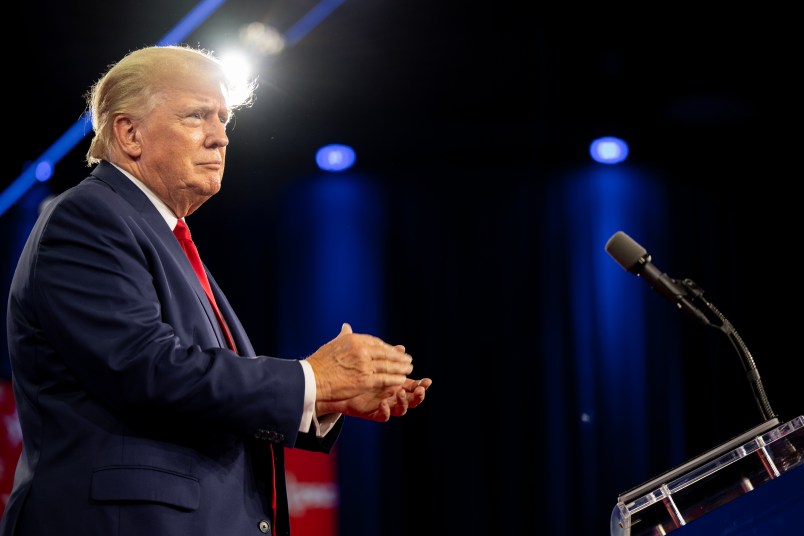After twisting federal criminal and national security law to help former President Trump fend off the Mar-a-Lago investigation, U.S. District Judge Aileen Cannon for the Southern District of Florida has given him another boost.
In a Thursday order, Cannon smacked down an attempt from the special master that Trump hand-picked to sift through records in the case that would have forced the former President to back up multiple claims of malfeasance that he’s made against federal law enforcement.
Among other things, Trump has claimed that the FBI “planted” or otherwise faked records that it seized from Mar-a-Lago pursuant to a search warrant in August.
U.S. District Judge Raymond Dearie for the Eastern District of New York, the special master in the case that Trump wanted appointed, proposed a schedule for the case that would have seen Trump verify the DOJ’s inventory of what was taken. But Cannon overruled that provision of the special master’s plan.
“There shall be no separate requirement on Plaintiff at this stage, prior to the review of any of the Seized Materials, to lodge ex ante final objections to the accuracy of Defendant’s Inventory, its descriptions, or its contents,” Cannon wrote in her ruling, adding that her earlier order appointing Dearie “did not contemplate that obligation.”
The move helps Trump avoid having to say whether or not the records that the FBI took were all in his possession before the raid. He will no longer have to state his objections to the accuracy of the DOJ’s inventory in court, where perjury is a crime, at least until he can review what the FBI took.
It’s not the only thing that Cannon did in the order which potentially made Trump’s life easier.
The new schedule that Cannon created for Dearie extends the amount of time that the special master will have to review the records until Dec. 16 – more than four months after FBI agents seized reams of government records, some highly classified, from Mar-a-Lago.
Cannon referred to it as a “modest enlargement” that was needed due to “the circumstances as they have evolved since entry of the Appointment Order.”
Trump’s big deadline, however, will be Nov. 4. Then, Cannon ordered, he will have to state, document-by-document, what privileges he claims apply to the records seized at Mar-a-Lago. Cannon ordered that Trump could lodge objections based on attorney-client and work product privileges, and on claims of Executive Privilege on whether the records are presidential or personal records per the Presidential Records Act.
The Supreme Court has ruled that executive privilege has to be asserted by a sitting President. Joe Biden has not asserted that the privilege applies to the records previously held by Trump.
Trump’s decision to advocate for Dearie’s appointment had been widely seen as backfiring. But now, Cannon’s decision complicates his task, lengthens the impediment to the DOJ’s investigation, and gives Trump some cover until after the mid-term elections.
Dearie had also, for example, asked for Trump to distinguish any executive privilege claims he asserted between that which stops review of records within the executive branch, and that which stops records from being spread externally.
It’s a distinction which pierces the absurdity of Trump’s executive privilege claims: executive privilege can’t prevent the executive branch from accessing its own records. Also, in case anyone needs reminding, Trump is no longer a part of the executive branch.
But Cannon erased that distinction in her order, asking only for objections related to executive privilege.






